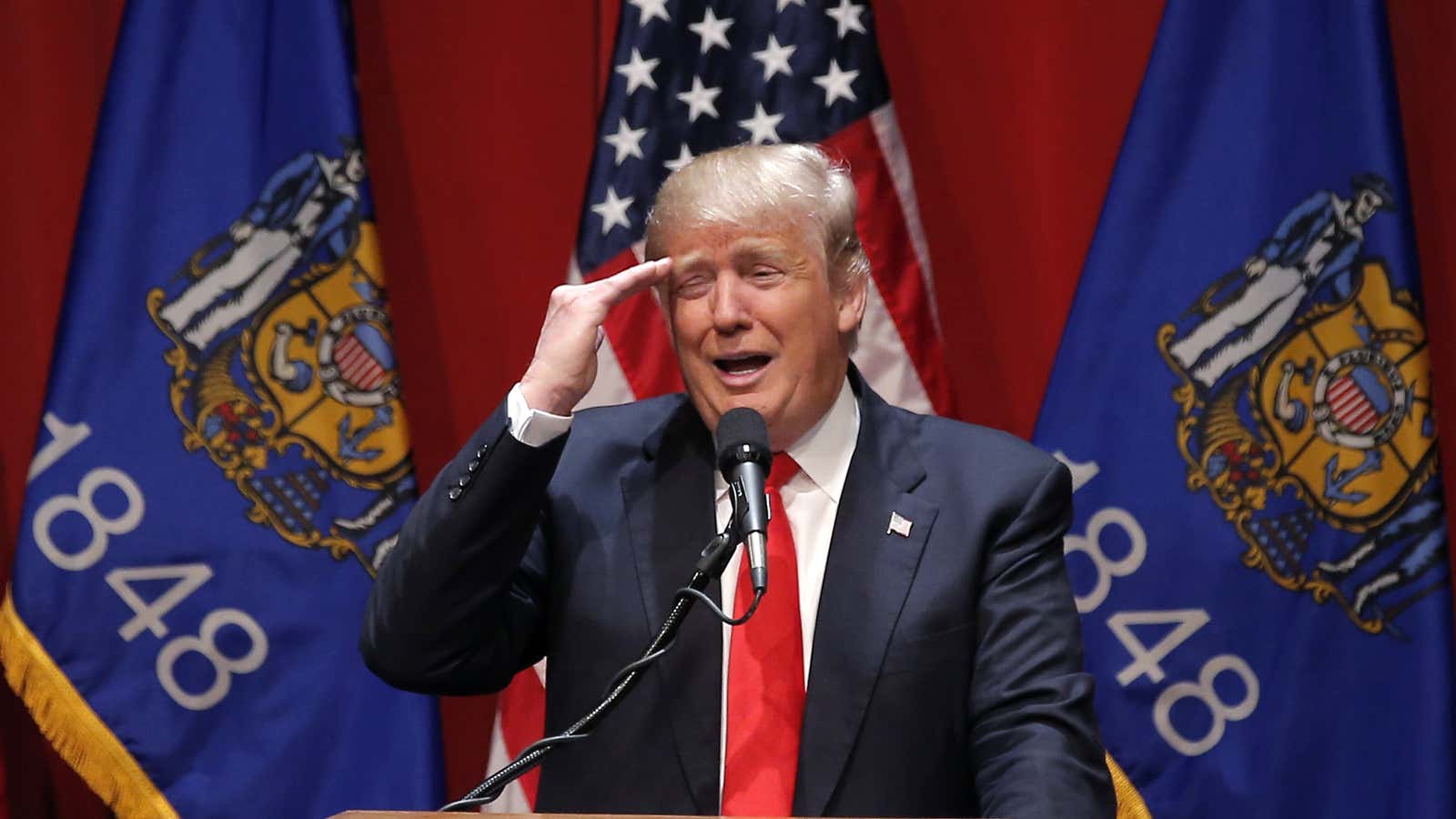It’s not just disillusioned Republican lawmakers who are coming out against Donald Trump.
Scientific American, the popular science magazine, has published an op-ed denouncing the GOP presidential nominee’s stances on a variety of science-related issues.
When the major Republican candidate for president has tweeted that global warming is a Chinese plot, threatens to dismantle a climate agreement 20 years in the making and to eliminate an agency that enforces clean air and water regulations, and speaks passionately about a link between vaccines and autism that was utterly discredited years ago, we can only hope that there is nowhere to go but up.
The magazine also takes to task a political system in which it says facts, scientific and otherwise, “have become an undervalued commodity” and in which hostility to science can be found on both sides of the political spectrum. Those are relatively old gripes, but they’ve taken on new resonance this election season. From the op-ed:
Science has not played nearly as prominent a role as it should in informing debates over the labeling of genetically modified foods, end of life care and energy policy, among many issues.
The current presidential race, however, is something special. It takes antiscience to previously unexplored terrain.
We’ve reached out to the Trump campaign for a response.
As Scientific American itself notes, the magazine isn’t usually in the business of endorsing political candidates—or in this case, warning voters against one. But the publication’s decision to weigh in on the US presidential election underscores the skepticism the scientific community has toward a Trump presidency. (For more on what has the scientists so rattled up, we recommend Mother Jones’ June 2015 roundup of Trump tweets on issues like global warming, vaccines, and Ebola. There’s also a whole website devoted to the topic, called Trump vs. Science.)
There’s more to come from Scientific American as the US presidential election unfolds, the publication says. “In October, as we did four years previously, we will assemble answers from the campaigns of the Democratic and Republican nominees on the public policy questions that touch on science, technology and public health and then publish them online.”




